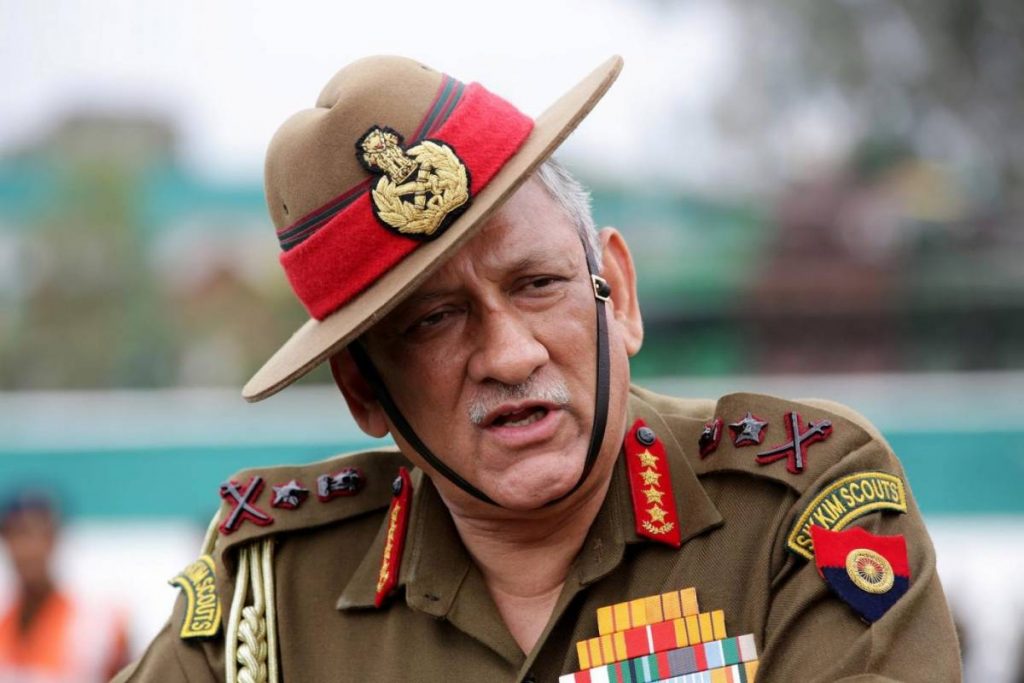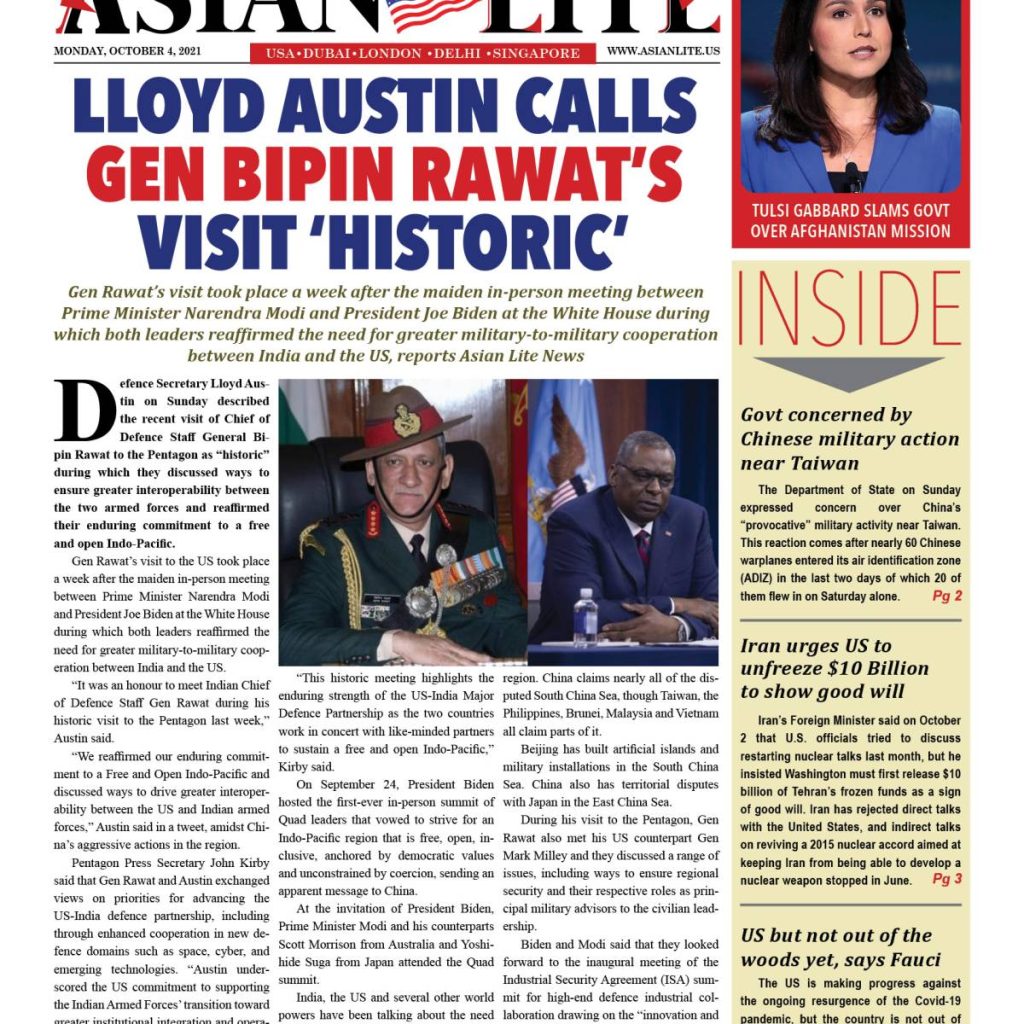Gen Rawat’s visit took place a week after the maiden in-person meeting between Prime Minister Narendra Modi and President Joe Biden at the White House during which both leaders reaffirmed the need for greater military-to-military cooperation between India and the US, reports Asian Lite News
Defence Secretary Lloyd Austin on Sunday described the recent visit of Chief of Defence Staff General Bipin Rawat to the Pentagon as “historic” during which they discussed ways to ensure greater interoperability between the two armed forces and reaffirmed their enduring commitment to a free and open Indo-Pacific.
Gen Rawat’s visit to the US took place a week after the maiden in-person meeting between Prime Minister Narendra Modi and President Joe Biden at the White House during which both leaders reaffirmed the need for greater military-to-military cooperation between India and the US.
“It was an honour to meet Indian Chief of Defence Staff Gen Rawat during his historic visit to the Pentagon last week,” Austin said.
“We reaffirmed our enduring commitment to a Free and Open Indo-Pacific and discussed ways to drive greater interoperability between the US and Indian armed forces,” Austin said in a tweet, amidst China’s aggressive actions in the region.

Pentagon Press Secretary John Kirby said that Gen Rawat and Austin exchanged views on priorities for advancing the US-India defence partnership, including through enhanced cooperation in new defence domains such as space, cyber, and emerging technologies.
“Austin underscored the US commitment to supporting the Indian Armed Forces’ transition toward greater institutional integration and operational jointness. They also discussed opportunities for expanding multilateral cooperation with regional partners,” he said.
“This historic meeting highlights the enduring strength of the US-India Major Defence Partnership as the two countries work in concert with like-minded partners to sustain a free and open Indo-Pacific,” Kirby said.
On September 24, President Biden hosted the first-ever in-person summit of Quad leaders that vowed to strive for an Indo-Pacific region that is free, open, inclusive, anchored by democratic values and unconstrained by coercion, sending an apparent message to China.
At the invitation of President Biden, Prime Minister Modi and his counterparts Scott Morrison from Australia and Yoshihide Suga from Japan attended the Quad summit.
India, the US and several other world powers have been talking about the need to ensure a free, open and thriving Indo-Pacific in the backdrop of China’s rising military manoeuvring in the resource-rich region.
China claims nearly all of the disputed South China Sea, though Taiwan, the Philippines, Brunei, Malaysia and Vietnam all claim parts of it.
Beijing has built artificial islands and military installations in the South China Sea. China also has territorial disputes with Japan in the East China Sea.

During his visit to the Pentagon, Gen Rawat also met his US counterpart Gen Mark Milley and they discussed a range of issues, including ways to ensure regional security and their respective roles as principal military advisors to the civilian leadership.
Biden and Modi said that they looked forward to the inaugural meeting of the Industrial Security Agreement (ISA) summit for high-end defence industrial collaboration drawing on the “innovation and entrepreneurship in defence industries for co-development, co-production and expanding mutual defence trade”.
The weeklong ISA summit concluded in New Delhi on Friday with an agreement to establish the Indo-US Industrial Security Joint Working Group.
India’s Press Information Bureau said, “This group will meet periodically to align the policies and procedures expeditiously that will allow the defence industries to collaborate on cutting edge defence technologies.”
Anurag Bajpai, joint secretary in the Department of Defence Production, and David Bagnati, the assistant director at the Defence Technology Security Administration, led their sides at the summit.
In the series of visits high-level by defence officials after Biden took office that began with a trip to India by Austin, Vice-Admiral G. Ashok Kumar, India’s Vice Chief of Naval Staff, came to the US in June.
He met with Vice Admiral Steve Koehler, the commander of the US 3rd Fleet that operates in the Indo-Pacific.
The US Navy quoted Koehler as saying, “The US-India strategic partnership is one of our most critical relationships in the Indo-Pacific. Open discussion of shared and complementary capabilities not only strengthens our relationship, it increases our naval effectiveness as we work together to ensure a free and open Indo-Pacific.”

Leave a Reply